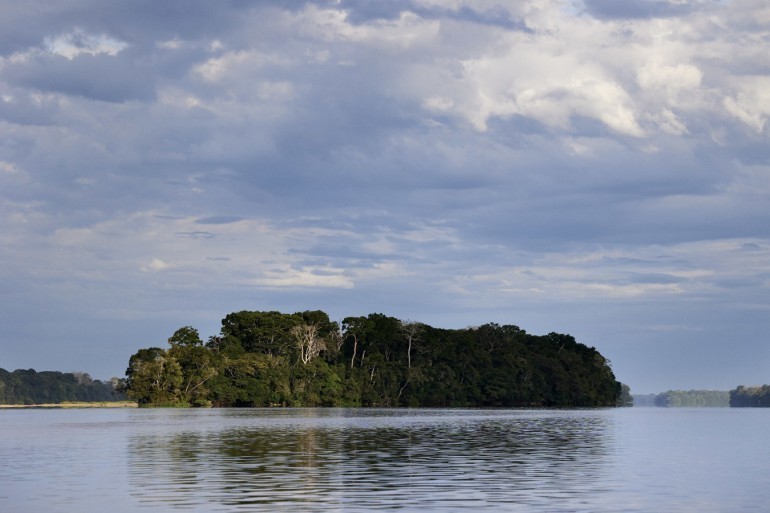

09.02.2024
The Carbon & Biodiversity Commission published its 10th Watch at the end of January. Here are the headlines. The full report is available to ATIBT members on request.

1. A half-tone COP28 for carbon and forests
COP28, held in Dubai in December 2023, produced mixed results. Although some progress was made, including an agreement on a transition away from fossil fuels and the creation of a fund for damage caused by climate change, discussions on Article 6, which governs the carbon markets, were inconclusive. The points of disagreement concerned the transparency of the carbon markets and the integrity of the mechanisms. For the forestry sector, the question of including carbon absorption projects, such as tree plantations, gave rise to debate, as did that of "enhanced conservation" projects. Some countries have argued for an approach based on reducing emissions and absorption. There were some announcements on the forestry and timber sector, including the commitment by 17 countries to increase the use of wood in construction by 2030. However, the forestry sector, in particular the tropical forests of the Congo Basin, was poorly represented at COP28. The need for lobbying to promote the sustainable management of tropical forests as a means of combating deforestation, preserving biodiversity and fostering development was underlined, with particular emphasis on the crucial role of the Congo Basin as the planet's last great terrestrial lung and reservoir of biodiversity.
2. Plan Vivo launches its biodiversity standard
On 7 December 2023, the Plan Vivo foundation launched its new biodiversity standard, PV Nature, against the worrying backdrop of widespread biodiversity loss. With over 25 years' experience in certifying nature-based projects, Plan Vivo aims to generate high-integrity biodiversity certificates to promote positive outcomes for nature, the climate and local communities. The new certificate is distinguished by its alignment with principles such as community participation, fair benefit sharing and transparency. Unlike carbon offset certificates, PV Nature encourages landowners and communities to conserve and restore crucial ecosystems. In this way, Plan Vivo hopes to contribute to the future market for biodiversity certificates and meet the estimated need for between $598 and $824 billion a year in funding for Nature. The launch of PV Nature is part of the COP28 strategy to develop initiatives in favour of biodiversity.
3. New rebounds on the carbon markets
In 2023, the voluntary carbon market was rocked by controversy, particularly around Verra credits, whose legitimacy was called into question by The Guardian in January. This time, a new controversy is targeting the credits issued by the VMR0006 and Gold Standard methodologies for improved cooking stoves, which are accused of overestimating climate benefits by 1,000%, according to a study by the University of Berkeley. The credits distributed would have been overestimated due to the simultaneous use of traditional and improved stoves. Verra and Gold Standard have responded with updates to their methodologies. However, criticism has emerged about the integrity of the study, underlining the importance of financing alternatives to polluting fuels. These controversies risk undermining consumer confidence in carbon credits, underlining the need for stronger governance and greater transparency in the voluntary market to attract crucial environmental finance.
4. Verra's forest and timber methodologies: constantly evolving
Verra, the world's leading carbon standard, has responded to criticism by revising several of its methodologies to enhance transparency. Methodology VM0048, published in November 2023, relates to REDD+ projects and aims to address previous criticisms by working with national governments to establish baselines derived from jurisdictional REDD baselines. Another revision, VMR0009, extends the AM0057 methodology to include wood waste in the production of pulp, paperboard, fibre or bio-oil, thus promoting projects that help solve waste-related problems while acting on the climate. In addition, a public consultation is underway for VM0045 to distinguish between emission reductions and removals in improved forest management projects. These revisions demonstrate Verra's efforts to strengthen the robustness of its methodologies in the face of criticism.
5. Despite blockages, Article 6 generates an initial transaction
In December 2023, Thailand and Switzerland completed the first transaction of ITMOs (Internationally Transferred Mitigation Outcome) under Article 6 of the Paris Agreement. Under a bilateral agreement, Switzerland financed a programme to electrify 2,000 buses in Bangkok. After verification, 1,916 ITMOs were purchased by the Kilk Foundation, removing these emission reductions from Thailand's carbon accounting system and integrating them into Switzerland's system. This transaction is seen as a positive signal, although questions remain about the speed of the transfers despite key unresolved points in the Article 6 mechanism.
6. Member news
Finally, as always, the Watch reports on news from its members. WWF France publishes Living Forests Newsletter 13, highlighting the CIBEL programme aimed at preserving biodiversity in Africa. Precious Wood launches the REDD+ project "The Amazônidas REDD+ AUDD Grouped Project" in Brazil. The OBC (Organization for Biodiversity Certificates) met to launch the initiative and discuss certificate mechanisms in relation to biodiversity. A new method, e-DNA, is being used by SPYGEN and TEREA in Gabon to assess the impact of FSC certification on biodiversity. Nature+ and African Parks Network have completed the wildlife inventory of INTHEROLCO AG's concession in Congo. The CAAPP-Faune project, aimed at monitoring wildlife in Central Africa, was launched by Nature+ with partners such as Gembloux Agro-Bio Tech and Cornell University.